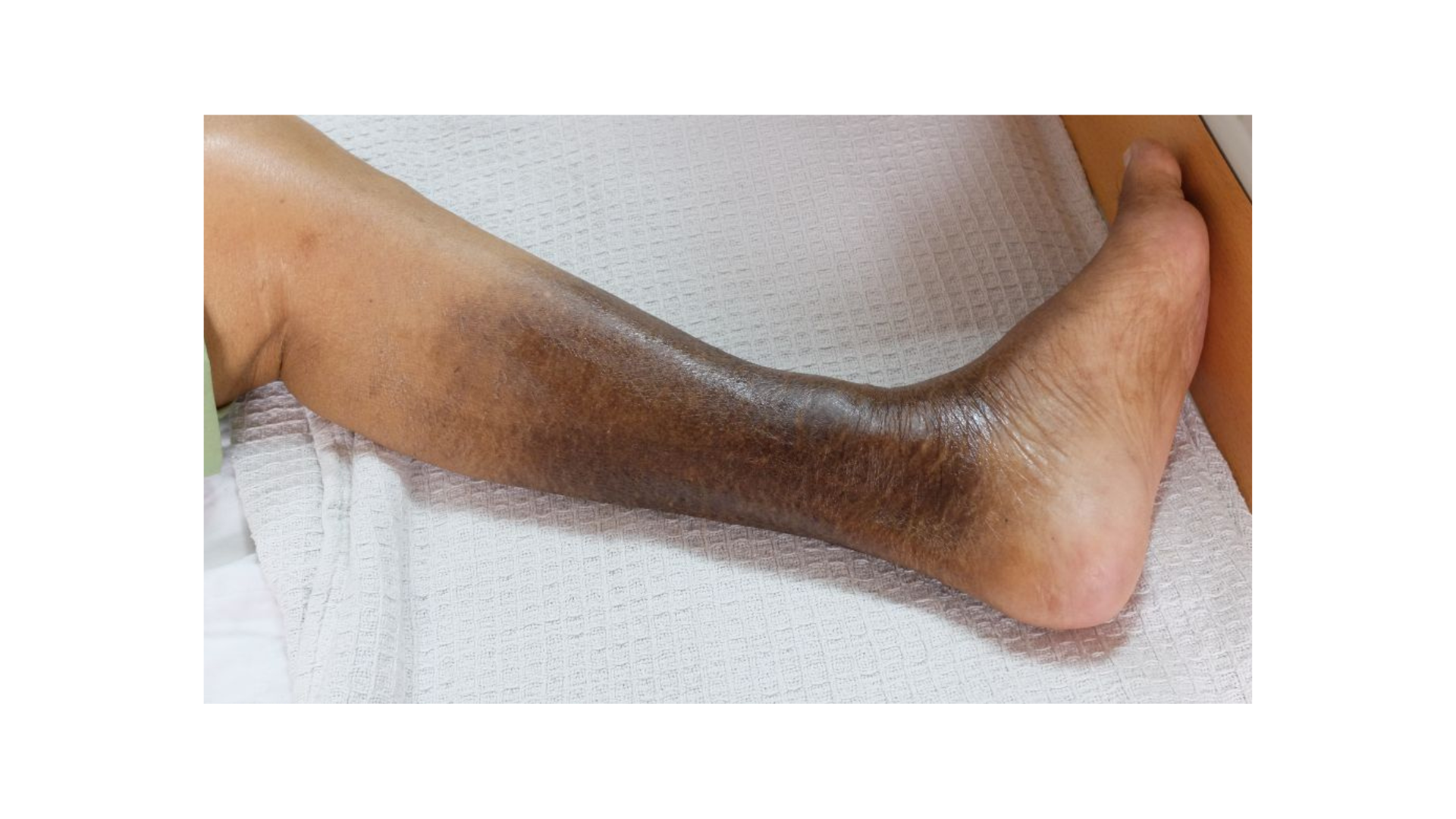How AI Could Impact Medical Education
September 5, 2023
Editor's Note: In this interview, Kyle Wu, MBA, MD and Ozgur Guler, PhD discuss the ways AI can help providers educate themselves, such as through large language models and gamification.
Transcript
Hi, my name is Kyle Wu, MBA, MD. I'm the chief medical officer and co-founder of eKare. I studied biomedical engineering back in college and started my career in general surgery. And then I transitioned into medical device and medical software, specialized in computer vision imaging and artificial intelligence and applying these disciplines in the field of wound care.
My name is Ozgur Guler, PhD. I also have a background in biomedical engineering. I also did my PhD in image-guided surgery and robotics. I'm overseeing product development and R&D at eKare. And I also have been working on AI and machine learning models for the for the last decade.
How can clinicians learn foundational skills to enable continued learning about AI technology as it evolves?
Kyle Wu, MBA, MD
There are certainly tons of articles and videos available on the internet. You know, if you go to YouTube, do a quick “AI and healthcare” search, you get tons of videos. Some of them are good, some are bad. Often the resource, the source of the information is unknown, and the quality can be questionable. So that's why this, such, you know, such information is not ideal. Ideally, you have more structured learning in AI. And I know reputable institutions like Stanford, MIT, they've set course curriculum in health care AI that's open to the public.
How Much Do You Know About Artificial Intelligence in Health Care? Take our quiz to find out! Click here.
And more recently, I think there are some medical schools like the University of Illinois Chicago that actually offers structured curriculum in AI as part of the medical school curriculum. And the neat thing is that it doesn't just teach you the terms and concepts of the different AI tool but asks you to be really hands-on. Ask you to, you know, come up with a plan to integrate the AI technology into the day-to-day health care practice, both operational and clinical. So, it's refreshing to see changes like that happening in the medical education.
Ozgur Guler, PhD
So together with introducing a new syllabi for medical schools or courses offered by MIT, Stanford, and Ivy League universities, there are also online learning platforms available where you can learn about these topics. Two of the popular ones are Coursera and Udemy. And additionally, you can also get certified after you've finished your training.
How can providers stay current on new evidence-based practice through AI?
Kyle Wu, MBA, MD
Yeah, there's certainly no substitution for reading the publications in journals in medicine. But at the same time, there's just way too much data for clinicians to consume. For example, in year 2020, there are 3 million publications in the field of science engineering. And of course, a big chunk of that is in medicine. And this number continues to grow. So, it becomes very impractical to rely on, you know, going through the different journals and articles.
That's why there are tools like Uptodate that helps compile and summarize some of these latest publications so clinicians can better consume that. But I believe AI can take it to a next level. I think AI can really present the information relevant to you based on your education, your level of training, your credentials, even the formulary at your institution. So, you can access the information that are highly irrelevant. In a way, we're already doing that with Facebook and Twitter. Some say that these platforms know you better than yourself. But of course, when we do this in medicine, we need to do this in a more controlled and more curated way to make sure that the data, the information is of high quality.
Ozgur Guler, PhD
We have seen recently with the introduction of large language models. I think everyone is familiar with chatGPT. And the power chatGPT has, the abilities, what you can do with it. And one important ability of large language models is their comprehension of text, which means you could web scrape all the publications in a source like PubMed and then ask questions like, “okay, for this particular topic, what are the most relevant publications?” And if it can summarize it for you, so it can prepare it in a bite-sized manner, it can prepare it for you so you can learn about these things in a very structured, individual, and controlled way.
How can AI be used for learning support and knowledge testing in medical education?
Kyle Wu, MBA, MD
So, one obvious application of AI in this context is information retrieval. So in other words, we can use AI to have a very, very smart textbook. So right now, with the textbook, in order to find the topic, the information that you need, interested in, you have to go through the table of contents and go to the index to find the right information. After that, you still have to read through the different paragraphs to get to the answer that you need.
And AI can really streamline that process. You simply ask AI the question that you’re interested in, as if you're talking to a normal person. And AI can go through the entire textbook, actually many, many, many textbooks to provide you the information you need. And then you can interact with that information, you can expand on it, dig deeper. So, it's very versatile and at the same time very relevant. And some companies are actually already providing that. When they give you the information, it also provides you the reference, even the exact page number of the textbook. So, you can find the source material.
And another way that AI can help in this context, I believe it's in gamified case presentation. So instead of talking to a preceptor, a moderator, to go through the simulated case, you can interact with AI and it's going to challenge you, going to redirect you. So, you can think critically about the case right in front of you. Most of the clinicians know that's the cornerstone of medical education, at least way in the end.
Ozgur Guler, PhD
Another topic is precision learning, where you can tailor the curriculum based on holistic information. You can find out what type of learner the user is. Does the learner, for example, benefit from visual learning, or auditory learning? The AI can actually adjust and individualize the curriculum and make it more approachable to individuals.
How do clinical scenarios and digital virtual patients (DVP) help build clinical reasoning as well as procedural and team skills?
Kyle Wu, MBA, MD
We kind of touched on this topic previously. And I think the key word here is accessibility. As I mentioned before, there's no substitute for good case presentation in medical education. But in order for that to be successful, you need to have a seasoned clinician, a preceptor, that will guide you through the process. And again, it's going to challenge you, it's going to redirect you. And if you make a good answer, he or she is going to tell you why, and same thing if you come up with the wrong answer. There's no substitute for that.
However, such a resource is hard to come by. But I think the role that AI can play here is really to democratize that capability. Maybe not 100%, but I think it can get fairly close and certainly better than the digital tools that we have right now for case presentation.
Basically, you go through a whole bunch of multiple-choice questions in order to reach the correct treatment plan at the end. But as we all know, that's not real life. We are not presented with multiple choices. There are infinite answers. And even if we make the wrong choice, we want to know why that’s not the ideal answer. So, I think having that AI capability can really present the opportunity.
Another thing is you mentioned the team building skills. These gamified interactive case presentations can be moderated not just to an individual, but to a group of people.
And based on the capability of a different individual, I think the moderation by the AI can be very powerful in soliciting different reactions, different answers, different thinking process. So, I think that's great for the team building exercise.
Ozgur Guler, PhD
One research field which is a predestined for this is also called digital twins. And in the digital twin technology, what you do is you take a snapshot of a patient and then you create a digital twin of that patient. For example, in the chronic wound field, we published a paper where we show a framework where you take a snapshot of the patient and the current wound you're dealing with. And then the digital twin, which is AI-based, the wound continues to heal in the digital world, if you will. And then in the real world, the real patient, when the real patient comes back, for example, after 2 weeks and has another visit where the doctor checks on their wound, they can compare it with the digital twin, with the wound which has been healing in the digital world.
And if there is no match, then there must be something wrong. Either the course of the treatment needs to be changed or you have to go to the next more sophisticated treatment level. So in the same way, you could actually have these patients where you create these digital twins and let them evolve over time and then use those as different use cases to discuss how the patient evolves over time, what would have been expected, what is the reality. So, you can create as many simulations of patients and wounds in this case. So, you get more and more experienced in talking and learning about these wounds.
Together with that, there are social media platforms like Figure 1, where verified health care professionals work together and they present cases, their real patients and then the community comments and brainstorms about treatment procedures and also diagnosis. So, this also builds a huge database which you could also use to create these cases which can be discussed by caregivers.
About the Speakers
Dr. Kyle Wu is a co-founder and Chief Medical Officer of eKare Inc. Dr. Wu received surgical training at the Georgetown University Hospital. He later joined the prestigious Innovation Fellowship at the Children’s National Medical Center in Washington DC where he spearheaded the project that ultimately paved way to the founding of eKare. Dr. Wu received MD/MBA degrees from Columbia University and BS in Biomedical Engineering from Johns Hopkins University. He has numerous peer‐reviewed publications in the fields of optics, imaging, and robotic surgery.
Dr. Ozgur Guler is an imaging scientist specializing in 3D wound imaging and computer vision. Prior to eKare, he was a researcher at the Sheikh Zayed Institute (SZI) for Pediatric Surgical Innovation in Washington DC, where he developed the segmentation and classification algorithms that laid the groundwork of the eKare inSight system. Dr. Guler received his PhD from the Medical University Innsbruck in Austria with focus on image‐guided diagnosis and therapy, MS in Computer Science with focus on image‐guided surgery and BS in Computer Science from Leopold‐Franzens University Innsbruck.
The views and opinions expressed in this blog are solely those of the author, and do not represent the views of WoundSource, HMP Global, its affiliates, or subsidiary companies.










Follow WoundSource
Tweets by WoundSource